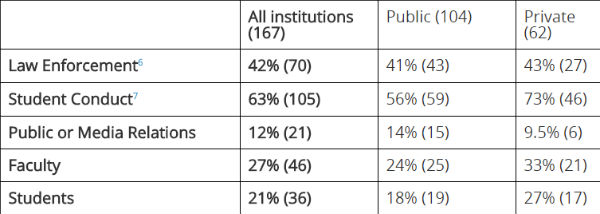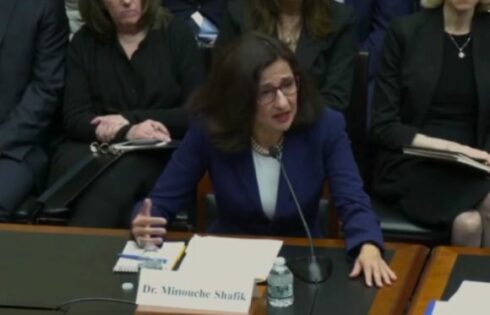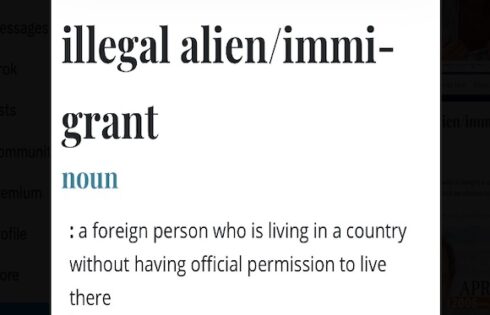
Some ‘stonewalled, hid records, deleted websites’ or demanded big payments
Having to justify your supposedly offensively curriculum to a campus administrator is bad enough, as a former University of Northern Colorado professor has explained.
But having to defend yourself when a cop shows up in response to a “bias incident”? That’s a whole other thing.
The Foundation for Individual Rights in Education released its first annual report on bias incident response teams today, and it’s even worse than we thought:
42% report speech to members of law enforcement or campus security officers, even though the teams deliberately solicit reports of a wide variety of non-criminal speech and activity.
12% of teams include at least one administrator dedicated to media relations, suggesting that part of the purpose of such teams is to deter and respond to controversies that might embarrass the institution.
Fewer than a third of teams included faculty members, whose absence diminishes the likelihood that the team will have a meaningful understanding of academic freedom.
That works out to 70 schools that use the cops to warn or threat students, staff and faculty when they offend someone.
And these are just the teams whose composition is made public.
FIRE identified 232 public and private schools with such teams – encompassing 2.28 million students – but only 167 identified their members to any degree. Another several dozen schools could have law enforcement going after protected speech – they won’t say.
Consider what counts as “bias”:
Almost all use categories widely found in discrimination statutes (race, sex, sexual orientation, etc.), while others investigate bias against obscure categories, such as “smoker status,” “shape,” and “intellectual perspective.” A significant minority include political affiliation or speech as a potential bias, inviting reports of and investigations into political speech by law enforcement and student conduct administrators. …
There is an unavoidable tension between promoting free speech and academic freedom and working to combat the presence of “bias” (however defined) on campus. Yet only 85 (50.9%) of the teams surveyed acknowledged a tension with freedom of speech, freedom of inquiry, or academic freedom on their websites or in their policies.
Also consider a subset of categories that virtually no school considers for bias:
Anti-Semitism: 0.50% (U. Vermont)
National Guard Status: 0.50% (SUNY Potsdam)
Childbirth: 0.50% (Grinnell College)
Smoker Status: 0.50% (U. Kentucky)
FIRE said that while many institutions complied with their requests for information on bias response teams:
Others stonewalled, hid records, deleted websites, or demanded thousands of dollars to view records, claiming that knowing how Bias Response Teams operate is not in the public interest.
It has only identified one school that includes “substantive training on First Amendment issues” for its bias response team members: Louisiana State.
And a shocking minority of schools – 28 percent – don’t even say who reviews bias reports:
If universities are unwilling to publicly identify who is responsible for reviewing and responding to reports, then students, faculty, and the public will be hindered in holding public servants accountable. Similarly, a refusal to identify Bias Response Team members does not instill confidence that schools take complaints seriously by devoting capable people to overseeing them.
In a footnote, FIRE gives an “honorable mention” to one school, Washington’s Evergreen State College (which counts Simpsons creator Matt Groening as an alum), for handing over more than 7,000 pages of “thorough records on a timely basis”:
Contrast this with the University of California, which produced scant records after months of delay and obfuscation.
There’s much to see in the report, so read the whole thing. For a summary, see FIRE’s press release.
Like The College Fix on Facebook / Follow us on Twitter
IMAGE: LifetimeStock/Shutterstock





Please join the conversation about our stories on Facebook, Twitter, Instagram, Reddit, MeWe, Rumble, Gab, Minds and Gettr.